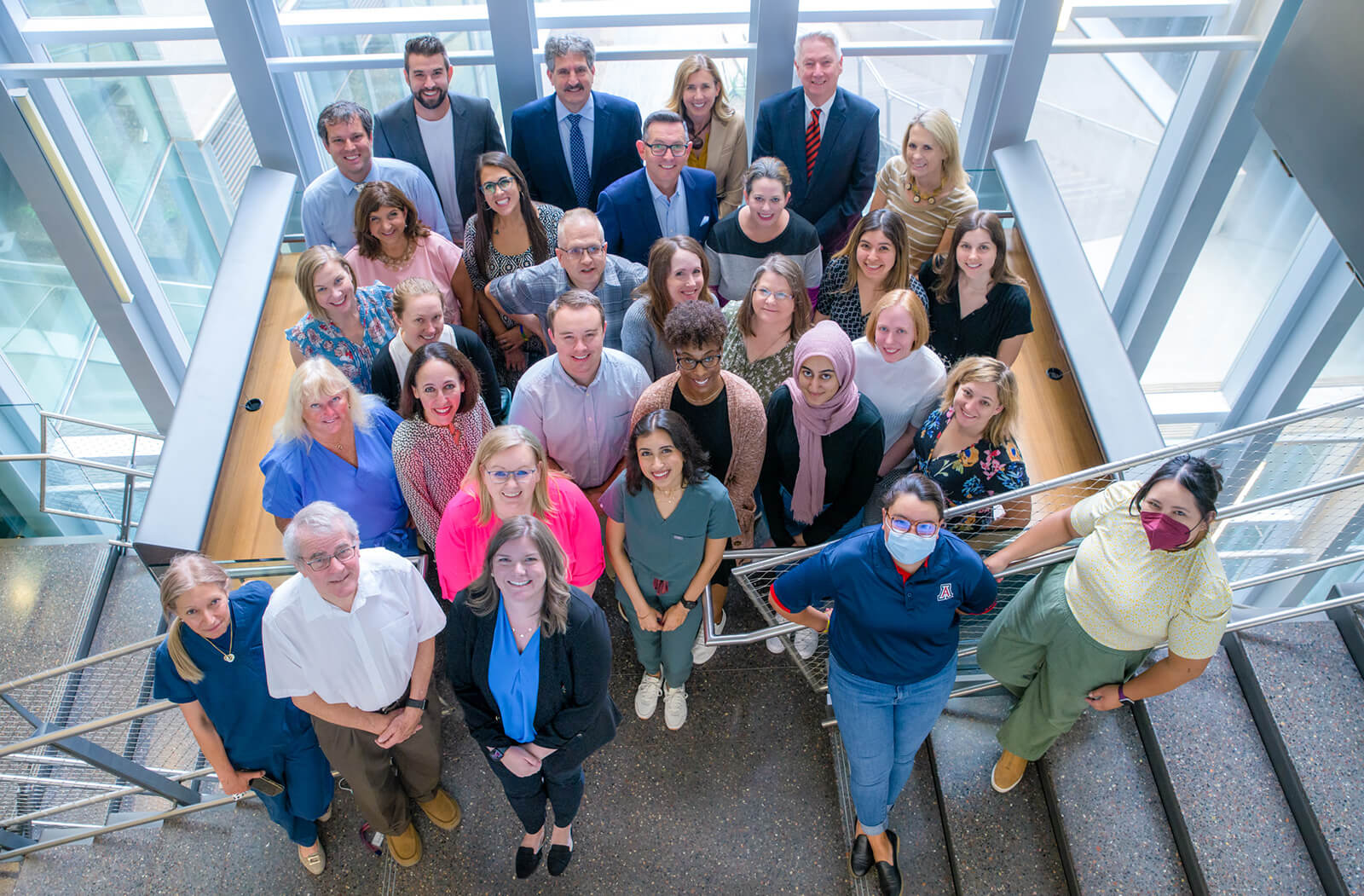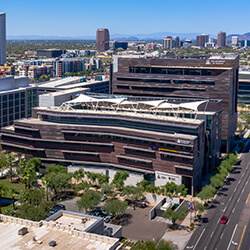
U of A College of Medicine – Phoenix Receives Full Reaccreditation for Eight Years

The University of Arizona College of Medicine – Phoenix has been granted eight years of accreditation by the Liaison Committee on Medical Education (LCME), the longest period of accreditation available before the next survey review is required.
The LCME is the nationally recognized accrediting authority for medical education programs leading to MD degrees in North America. A team from the LCME met to review the accreditation status of the college June 14-15 this year and recently shared its findings.

The College of Medicine – Phoenix first received accreditation by the LCME in 2012, making it the second medical school at the University of Arizona, alongside the College of Medicine – Tucson.
Dr. Lieberman worked with the accreditation team, led by Melanie Dean, the director of LCME accreditation, to complete the institutional self-study required by the LCME prior to the site visit. The COVID-19 pandemic caused the LCME to change the expectations and guidelines from previous years.
“The COVID-19 pandemic proved to be the largest challenge, as it occurred in the year that we collected the data and conducted surveys to submit with the self-study,” Dr. Lieberman said. “We had to make many adaptations that were different from our usual education program, and some of these were unpopular with students, whose voices are prominent in the accreditation process.”
The process for reaccreditation begins more than two years before the site visit; during this time, data from the internal processes of the medical education program is collected. The data covers the curriculum and other areas that contribute to the medical education program such as assessment, faculty appointments, facilities, student services and institutional policies.
“After we create a database of all these areas, we work for about 18 months to complete a self-study of the school, Dean said. “We assess areas that need improvement and the strengths of the college.”
Students served on the accreditation team to provide firsthand perspectives that spoke directly to accreditation standards. The team discovered that students were not receptive to the ways the college was communicating with them and worked to amend that weakness.
“We changed our communication strategy from their feedback,” Dean said. “Moving forward, we have new processes to integrate our accreditation inquiries, so we know about concerns when they are happening and can act quickly to remedy them.”
Lieberman said he credits the remarkable dedication and talent of the staff and faculty involved in the medical education program for helping the college earn its reaccreditation.
“We spend a lot of time reading between the lines to ensure we understand the unwritten expectations of each standard and element,” Dean said. “Like everything else, accreditation follows trends and standards; elements are applied based on how our peer institutions are excelling or struggling with the same items.”
Guy Reed, MD, MS, the dean of the college, said the strategic vision is to achieve distinction in personalized medical education to prepare the students to become exceptional physicians; this milestone helps the college continue to work toward that goal.
“I am proud that we were awarded full reaccreditation for the longest period achievable,” Dean Reed said. “This means that after rigorous examination, outside accreditors found that our college meets high standards for preparing students with the knowledge, skill and tools that they need to become physicians.”
About the College
Founded in 2007, the University of Arizona College of Medicine – Phoenix inspires and trains exemplary physicians, scientists and leaders to advance its core missions in education, research, clinical care and service to communities across Arizona. The college’s strength lies in our collaborations and partnerships with clinical affiliates, community organizations and industry sponsors. With our primary affiliate, Banner Health, we are recognized as the premier academic medical center in Phoenix. As an anchor institution of the Phoenix Bioscience Core, the college is home to signature research programs in neurosciences, cardiopulmonary diseases, immunology, informatics and metabolism. These focus areas uniquely position us to drive biomedical research and bolster economic development in the region.
As an urban institution with strong roots in rural and tribal health, the college has graduated more than 1,000 physicians and matriculates 130 students each year. Greater than 60% of matriculating students are from Arizona and many continue training at our GME sponsored residency programs, ultimately pursuing local academic and community-based opportunities. While our traditional four-year program continues to thrive, we will launch our recently approved accelerated three-year medical student curriculum with exclusive focus on primary care. This program is designed to further enhance workforce retention needs across Arizona.
The college has embarked on our strategic plan for 2025 to 2030. Learn more.